MADISON, Wis. (SPECTRUM NEWS) - Protests Saturday focused on Black moms and babies, and demanding equal care for them.
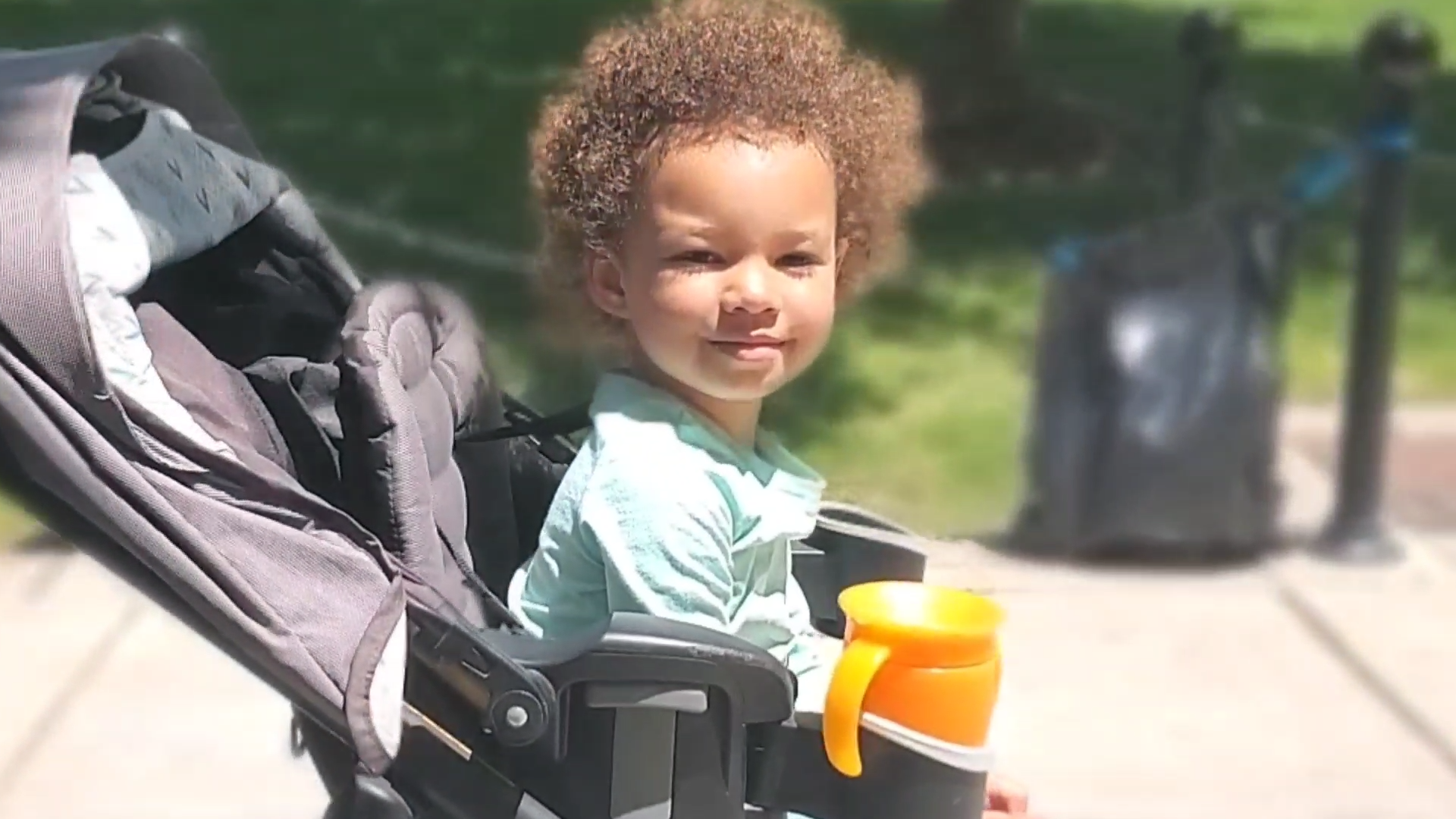
Studies show discrimination and lack of access to adequate healthcare can turn deadly for Black families. Wisconsin has the worst infant mortality rate for Black babies in the country, according to the most recent data from the CDC and other government organizations.
“The United States is one of the scariest places for a black mother to give birth, and a black baby to be born,” Micaela Berry said.
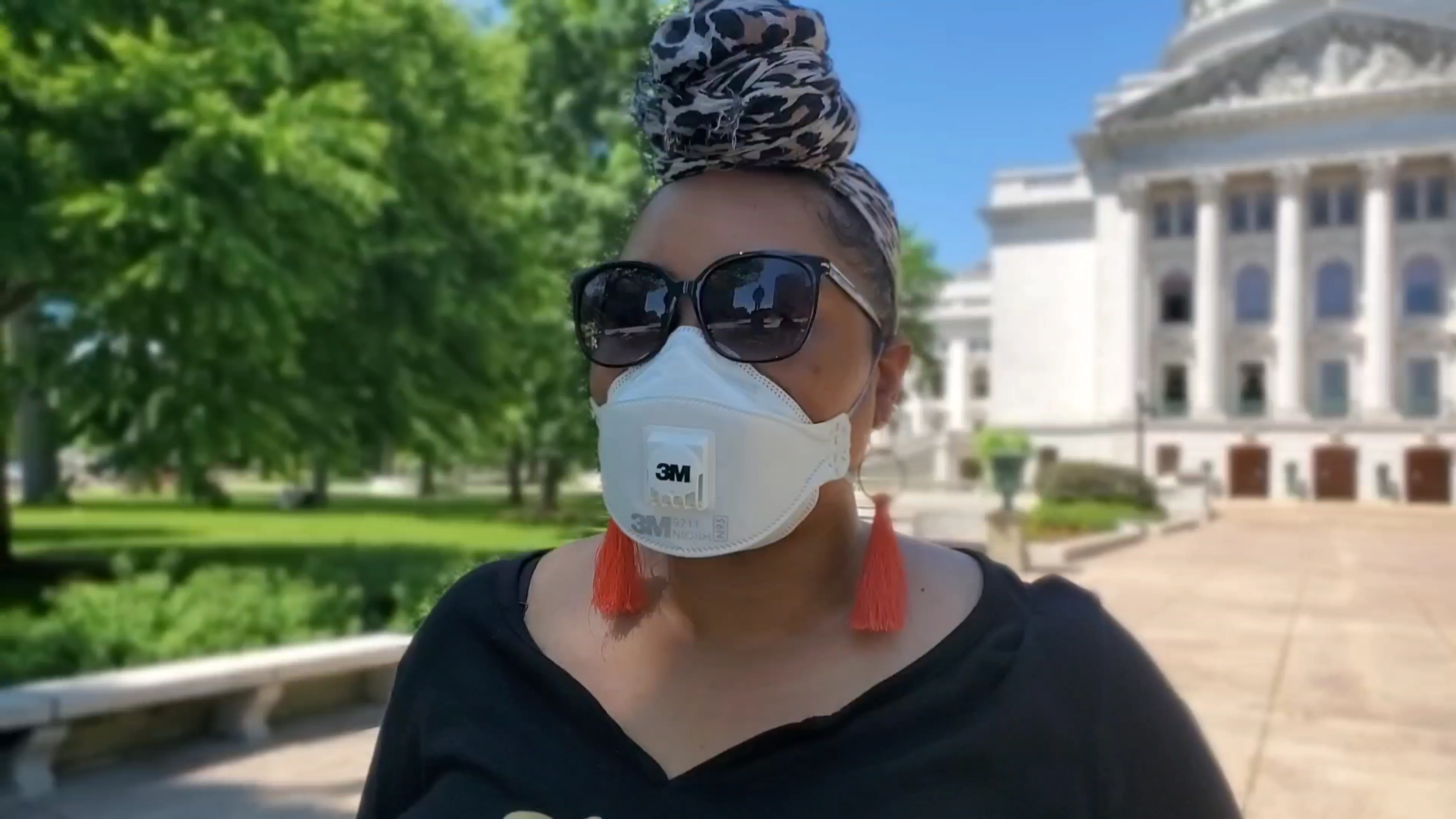
Berry is co-owner of Harambee Village Doulas. Harambee Village organized Saturday’s march, called “Been Hard to Breathe”.
She’s tired of the inequities she sees every single day as she helps families before, during, and after birth.
“Racism never gets a day off. I deal with it in maybe microaggressions, or systematic racism on a daily basis,” said Berry. “I… have felt exhausted.”
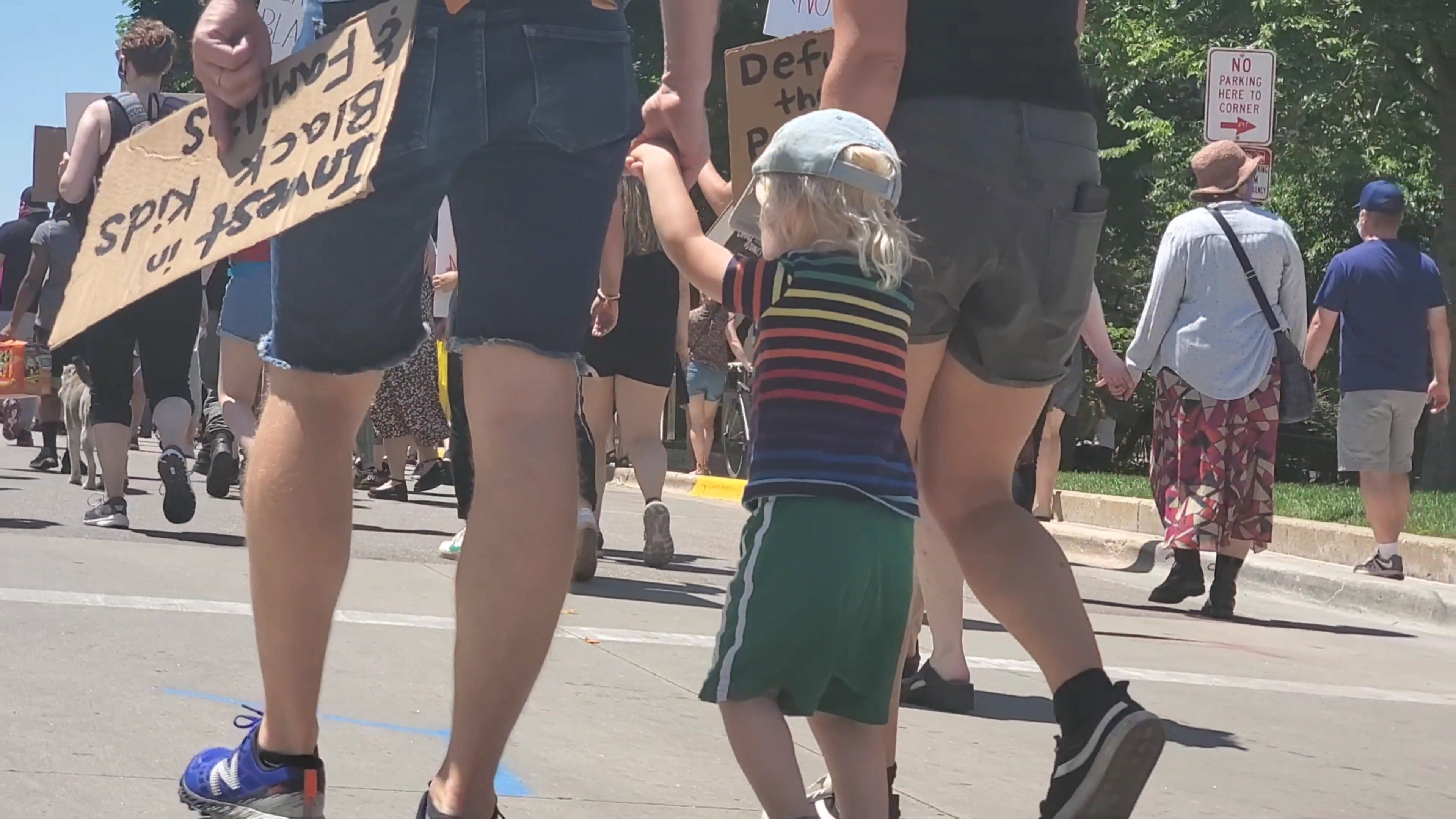
She and her partner at Harambee, Tia Murray, knew they had to seize this moment, where racial equity is getting more attention than ever, to talk about subpar care and access for Black families.
“For it to kind of come to the head that it is, it’s hopeful, but also exhausting at the same time,”
While police brutality has been one of the main focuses of protests around the country, Berry wanted to fight against the idea that so many Black women die giving birth. Nationally, Black women are five times as likely to die during childbirth than white women.
“We lose our lives in all different ways.”

It’s a devastating reality. Black babies born in Dane County are three times as likely to die than white babies. They’re also twice as likely to have low birthweight. That data comes from the Dane County Health Council and the Foundation for Black Women’s Wellness.
At least 1,000 people showed up for the Been Hard to Breathe march Saturday. The goal was to highlight the inequities in health care, provider treatment, and all Harambee Village does for the community.
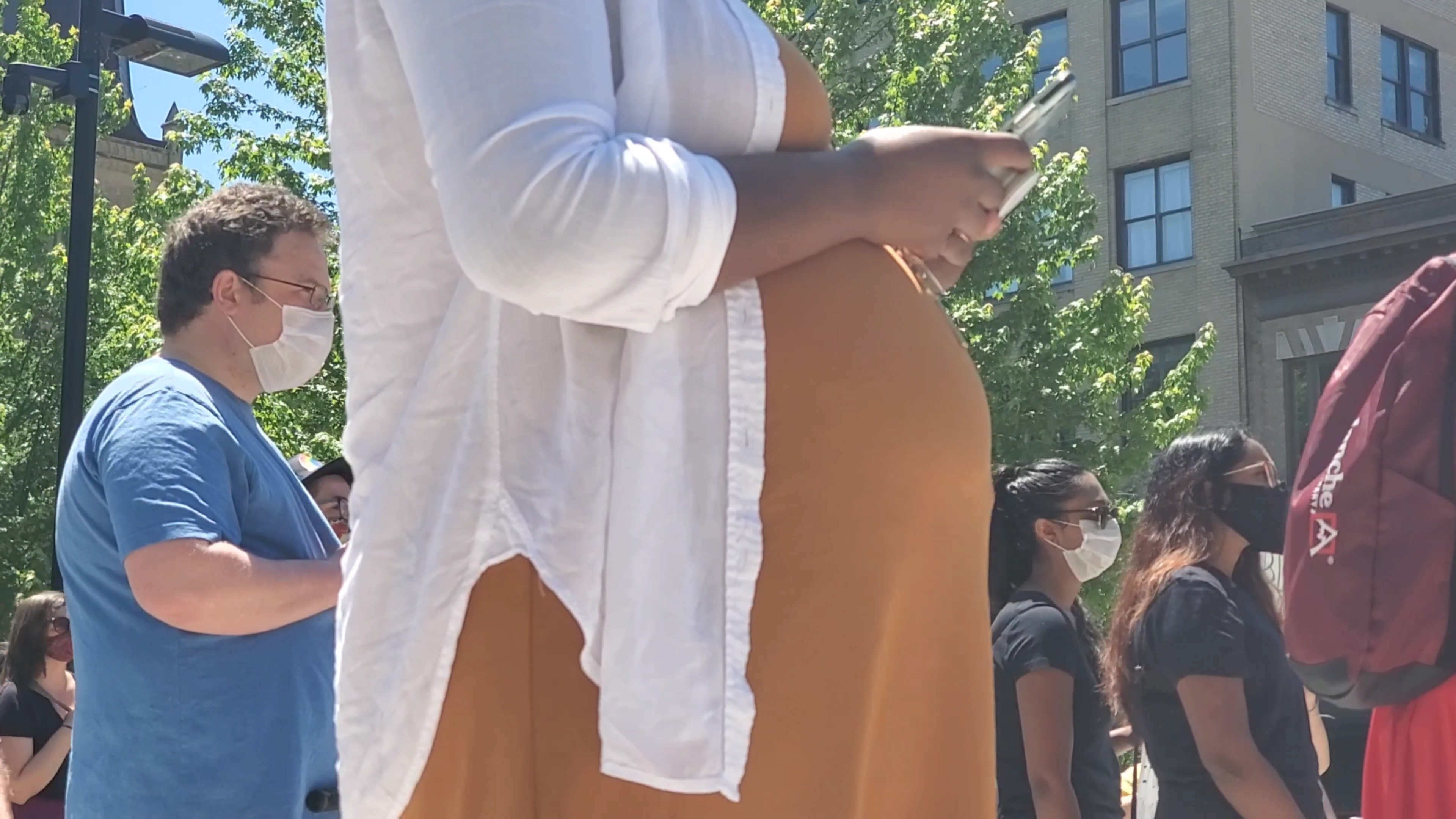
The crowd included lots of families, advocates, and even a handful of medical professionals like doctors and nurses. One doctor, who was white, held a sign that said “my patients need to breathe”.
The protesters marched to St. Mary’s and Meriter hospitals, where speakers planned to share their personal experiences.
Berry said they wanted to open the conversation between medical professionals and the Black community, to push for more equal care.
“We want to see the hospitals work together with pregnant women. We want to see freestanding birth centers run, opened, and operated by Black midwives. We want Black midwifery to be the center of birth workers,” said Berry. “We just want to be seen and heard, and we want our intelligence to matter.”
Berry said supporting Black moms and babies will help everyone thrive.
“This is an outcome that will help out not only our black community, but our community as a whole. When black people are healthy and seen and feel safe, your community is safer, your community is healthier, your community is better.”
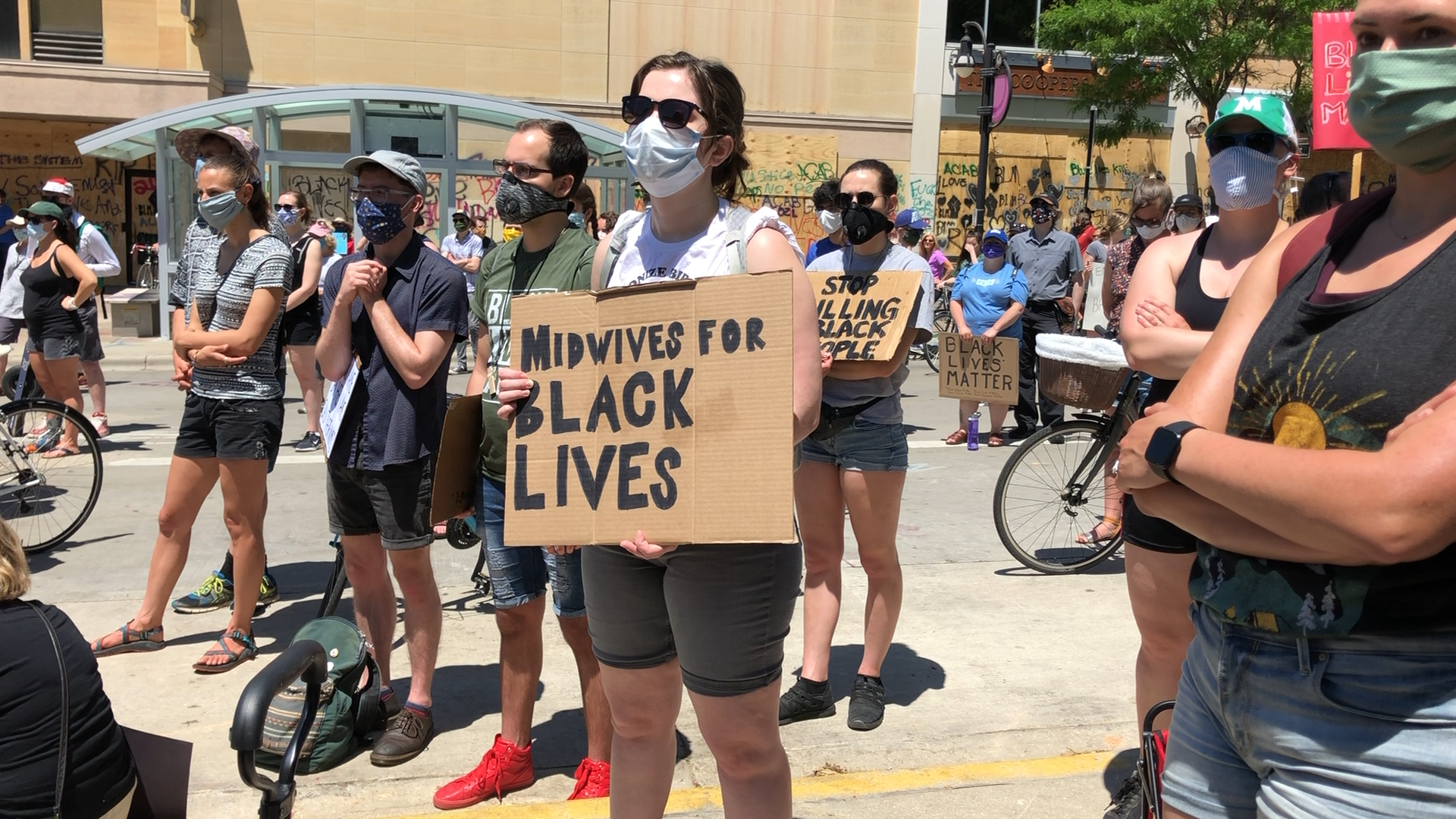
Earlier this year, officials announced they were creating the Black Maternal and Child Health Alliance of Dane County. Created with $1 million from the Wisconsin Partnership Program, the Alliance has spent more than two years on research and creating plans.
Step one involves a new system created by Epic that will help providers better screen patients, and connect them to resources those patients may need. It also allocated $25,000 for Harambee Village to train up to 20 new doulas to support families of color welcoming a new baby.
For more information on the Alliance, click here.



